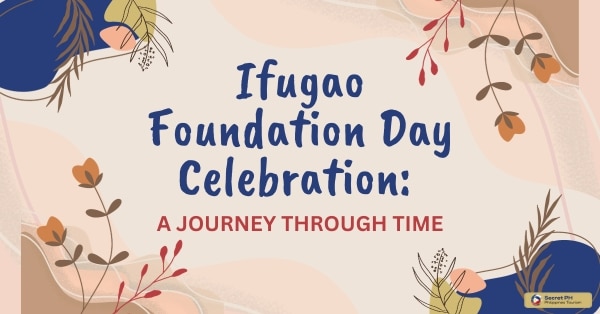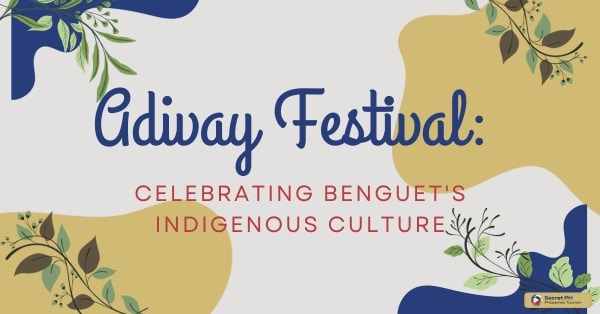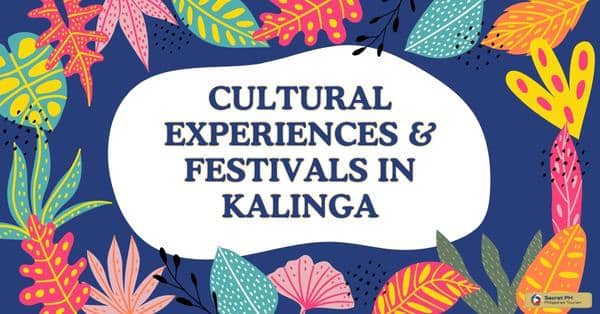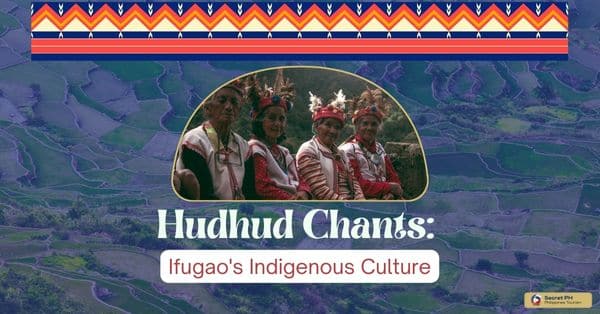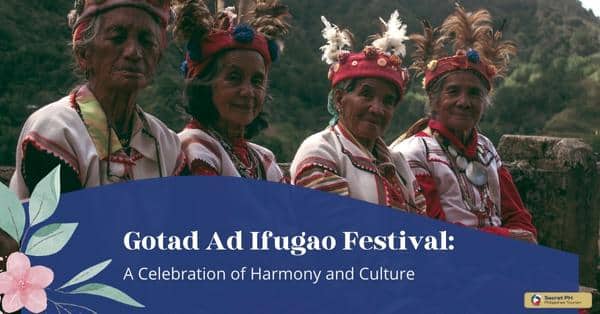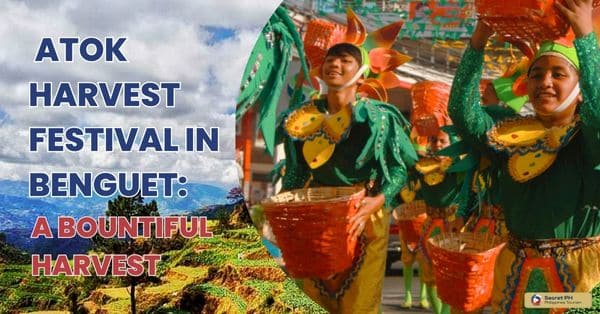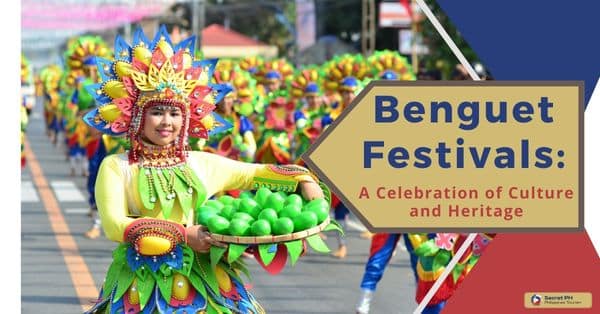Imbayah Festival in Ifugao, Philippines, is a vibrant celebration deeply rooted in the region’s history. This cultural extravaganza showcases traditional attire, music, and dance performances, along with rituals and ceremonies that hold immense spiritual significance. The festival also offers a taste of Ifugao’s culinary delights and artisanal craftsmanship.
In this article, we will discuss the historical roots of the Imbayah Festival, its highlights such as traditional attire & ornaments and music & dance performances, and some tips on how to enjoy the festivities.
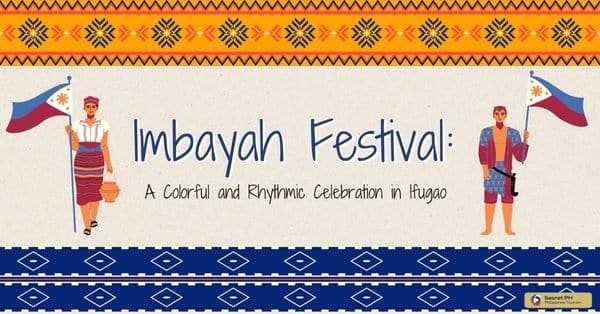
Imbayah Festival
The Imbayah Festival is a captivating cultural event held in the picturesque province of Ifugao. Rooted in the rich history of the Ifugao people, this celebration is a vibrant display of their unique traditions and heritage. The festival’s highlights include a grand parade adorned with a kaleidoscope of colors, showcasing the elaborate traditional attire and intricate ornaments worn by the locals.
The rhythmic music and mesmerizing dance performances add an enchanting touch to the festivities, immersing attendees in the heart of Ifugao culture. One of the most significant aspects of the Imbayah Festival is its profound connection to rituals and ceremonies that hold great spiritual importance for the community. Elders and community leaders play a pivotal role in preserving these sacred traditions.
For visitors, it’s not just a festival but also an opportunity to appreciate the profound cultural roots that run deep in the Ifugao way of life. Imbayah Festival offers a glimpse into the soul of this remarkable province, making it an experience that is both visually stunning and culturally enriching.
For pictures, booking, and more information, click here.
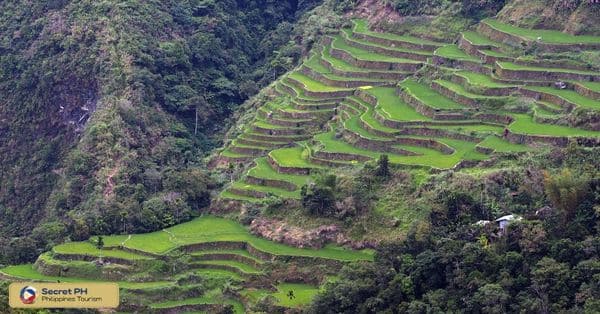
Historical Roots of Imbayah
The historical roots of the Imbayah Festival run deep into the cultural tapestry of the Ifugao people. This vibrant celebration finds its origins in the ancient traditions and practices of the Ifugao community, which has inhabited the breathtaking mountainous region of Ifugao in the Philippines for centuries.
Imbayah, derived from the native Ifugao language, signifies “celebration” and reflects the essence of this festival as a joyful tribute to their unique heritage. Imbayah’s historical significance is intertwined with the agricultural practices of the Ifugao, particularly their renowned rice terraces, a UNESCO World Heritage Site.
The festival traditionally marked the end of the rice harvest season, a crucial period for the Ifugao people. Through Imbayah, they expressed gratitude to their deities for a bountiful harvest, while also strengthening their sense of community. Over the years, this celebration has evolved, preserving its cultural authenticity while also welcoming modern elements, making it a fascinating blend of tradition and contemporary revelry.
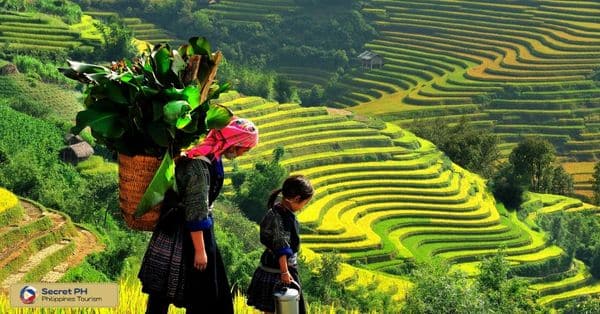
Highlights of the Festival
The Imbayah Festival in Ifugao is a dazzling showcase of the region’s rich cultural heritage. Rooted in tradition and pulsating with vibrant energy, this celebration offers a kaleidoscope of experiences that captivate the senses. Here, we explore the festival’s key highlights, providing a glimpse into the heart of Ifugao culture.
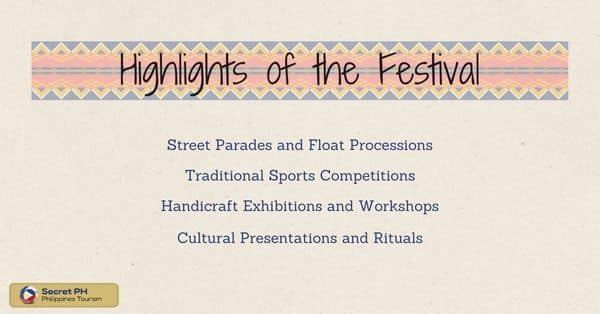
Street Parades and Float Processions
The streets come alive during the Imbayah Festival with vibrant parades and float processions. Communities from different towns in Ifugao participate in these lively spectacles, showcasing their creativity and artistic flair.
Adorned with colorful decorations and intricate designs, the floats depict the province’s natural wonders, cultural symbols, and historical landmarks. It’s a sight to behold as the streets become a vibrant tapestry of colors and a testament to the local pride.
Traditional Sports Competitions
In addition to the cultural performances and parades, the Imbayah Festival also features traditional sports competitions. Witness the strength and agility of the Ifugao people as they engage in friendly contests like wood chopping, spear throwing, and traditional wrestling. These events not only highlight the physical prowess of the participants but also serve as a reminder of the importance of these activities in Ifugao’s cultural heritage.
Handicraft Exhibitions and Workshops
The Imbayah Festival provides an excellent opportunity to appreciate the craftsmanship and skills of the Ifugao people. Handicraft exhibitions and workshops are held to showcase the intricate artistry behind their traditional crafts such as weaving, pottery, and wood carving.
Visitors can engage with local artisans, learn about their techniques, and even try their hand at creating their own masterpieces. It’s a chance to take home a unique souvenir and support the preservation of these traditional crafts.
Cultural Presentations and Rituals
The Imbayah Festival wouldn’t be complete without cultural presentations and rituals that pay homage to the deep spiritual beliefs of the Ifugao people. Witness sacred ceremonies, rituals, and displays that offer a glimpse into their ancestral traditions and practices. These presentations provide a profound understanding of Ifugao’s cultural identity and the significance it holds in their daily lives.
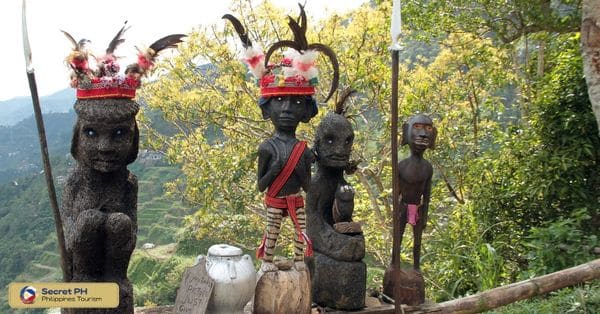
Traditional Attire and Ornaments
The Ifugao people have a deep and enduring connection to their cultural heritage, which is beautifully reflected in their traditional attire and ornaments. These garments and adornments hold profound significance in their way of life, symbolizing not only their identity but also their history and values. Here, we delve into the captivating world of Ifugao attire and ornaments, exploring the symbolism and artistry behind them.
1. Tapis– The tapis is a wrap-around skirt made from intricately woven fabric. It is traditionally worn by both men and women in Ifugao. The designs and patterns on the tapis represent symbols of nature, ancestral spirits, or important events in the community’s history.
2. Inabel– Inabel is a handwoven fabric that plays a significant role in the traditional attire of the Ifugao people. It is used to create various garments, including shirts, dresses, and shawls.
3. Beaded Jewelry– Beaded jewelry holds great importance in the traditional attire of the Ifugao people. Necklaces, bracelets, and earrings adorned with colorful beads are worn as ornaments during the Imbayah Festival.
4. Tikog Hats– The Ifugao people are known for their skill in weaving hats made from tikog, a type of grass. These hats are an essential accessory during the Imbayah Festival, providing protection from the sun while adding a touch of elegance to the traditional attire.
5. Metal Accessories– Metal accessories such as necklaces, earrings, and bracelets are also prominent in the traditional attire of Ifugao. These accessories are often made from brass or silver and feature elaborate designs inspired by nature and ancestral symbols.
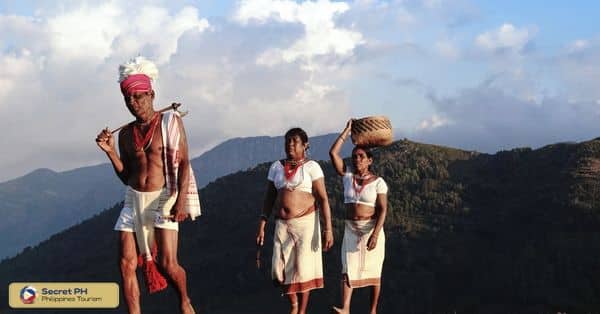
Music and Dance Performances
Music and dance are at the core of the Imbayah Festival in Ifugao, pulsating with the vibrant rhythm of Ifugao culture. These performances serve as a vibrant expression of the community’s history, beliefs, and way of life.
Intricate dance forms are a mesmerizing aspect of the festival, with each movement telling a story. Dancers, bedecked in colorful traditional attire and adorned with symbolic ornaments, gracefully interpret the narratives of their ancestors.
The music accompanying these dances is equally captivating. Traditional instruments like the gangsa (gongs), bamboo flutes, and the nose flute produce enchanting melodies that transport attendees into the heart of Ifugao culture.
The hypnotic soundscape created by these instruments harmonizes with the dancers’ movements, creating an immersive experience that not only entertains but also educates about the history and traditions of the Ifugao people. Music and dance performances at the Imbayah Festival serve as a testament to the living artistry and enduring spirit of this remarkable community.
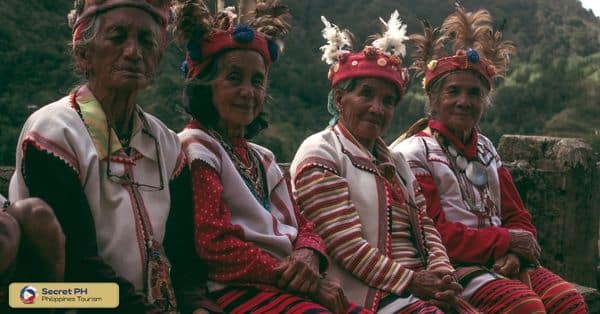
Rituals and Ceremonies
The Imbayah Festival in Ifugao is a vibrant and captivating celebration that showcases the rich cultural heritage of the Ifugao people. This festival, held in the province of Ifugao in the Philippines, is a grand showcase of traditional rituals and ceremonies that are deeply rooted in the community’s history and beliefs. Join us as we explore the mesmerizing rituals and ceremonies that make the Imbayah Festival an extraordinary event.
The Imbayah Festival is steeped in rituals and ceremonies that hold great significance for the people of Ifugao. These rituals are a way to honor their ancestors, seek blessings for a bountiful harvest, and reinforce their connection with the spiritual realm. Here are some of the notable rituals and ceremonies observed during the Imbayah Festival:
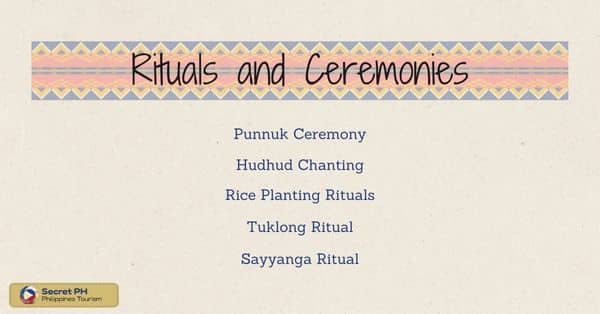
Punnuk Ceremony
The Imbayah Festival starts with the Punnuk ceremony, which marks the official opening of the festivities. During this ceremony, prayers and offerings are made to the gods, seeking their blessings and protection for the duration of the festival. It is a solemn occasion that sets the tone for the entire celebration.
Hudhud Chanting
The Hudhud chants are a crucial part of the Imbayah Festival. These chants are performed by skilled chanters known as mumbaki, who recite long narrative chants that tell the stories of the Ifugao people.
The Hudhud chants are an oral tradition passed down through generations and serve as a means of preserving their cultural heritage. These powerful and evocative chants often depict tales of heroism, love, and wisdom, connecting the present generation with their ancestral past.
Rice Planting Rituals
Rice is a staple crop in Ifugao, and the Imbayah Festival pays homage to the importance of agriculture through various rice-planting rituals. These rituals include the selection of the best seeds, blessings of the fields, and ceremonial planting. Participants dress in their traditional attire and come together to honor the agricultural deities, expressing gratitude for the abundance of food that sustains their community.
Tuklong Ritual
The Tuklong ritual is a sacred ceremony that commemorates the spirits of nature and the ancestors. It involves offerings, traditional dances, and music as a way to maintain harmony and balance with the spiritual realm. The Tuklong ritual is a deeply spiritual experience that reinforces the connection between the Ifugao people and their ancestral lineage, seeking blessings and guidance for their community.
Sayyanga Ritual
The Sayyanga ritual is a unique ceremony that showcases the bravery and skill of the Ifugao warriors. This ritual involves a mock battle, where participants engage in simulated combat using spears and shields. The Sayyanga ritual serves as a reminder of the bravery and valor of their ancestors and allows the younger generation to connect with their warrior heritage.
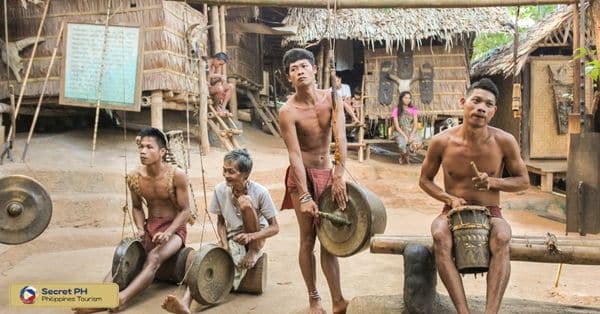
Tips for Attending the Festival
The Imbayah Festival in Ifugao promises a captivating journey into the heart of Ifugao culture and traditions. To ensure your visit is both enjoyable and respectful of local customs. Here are some essential tips for attending this vibrant celebration.
Getting There and Accommodations: Plan your trip well in advance. Consider staying in or near the festival venue to minimize travel time. Accommodations range from local guesthouses to more comfortable options, so book early to secure your stay.
Respecting Local Customs and Traditions: Imbayah is a cultural festival, so it’s crucial to be respectful. Dress modestly and ask for permission before taking photos of individuals or their possessions. Observe and follow local customs, including those related to entering sacred spaces.
Participating in Festival Activities: Immerse yourself in the festival by participating in workshops, cultural demonstrations, and interactive activities. Engaging with locals and trying your hand at traditional practices will enhance your experience.
Navigating the Crowds: Imbayah can draw large crowds, so be prepared for some congestion. Keep an eye on your belongings and be patient as you move through the festival grounds.
Learn About Ifugao Culture: Before attending, take some time to learn about Ifugao culture and its history. This knowledge will deepen your appreciation of the festivities.
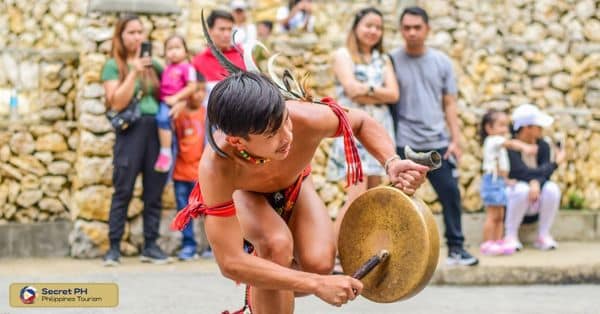
In conclusion
The Imbayah Festival in Ifugao is a vibrant and captivating celebration that showcases the rich cultural heritage of this remarkable community. From the vibrant parades and float processions to the mesmerizing music, dance, and rituals. This festival provides a kaleidoscopic glimpse into the heart of Ifugao culture.
With its unique blend of traditional customs and contemporary festivities, the Imbayah Festival is a must-visit for any traveler seeking an immersive experience of local culture and heritage. Through this festival, we can gain a deeper understanding of the Ifugao people and their enduring connection to their ancestral roots.

